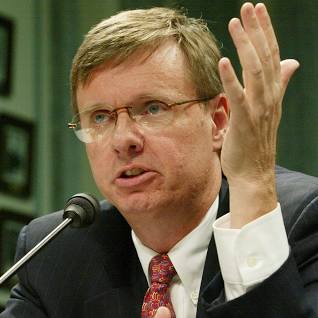As the frontline against illegal monopolies and deceptive corporate behavior, the Federal Trade Commission (FTC) has a critical role to play in building an economy that works for consumers and small businesses. Since becoming FTC Chair, Lina Khan’s efforts to rein in anti-competitive behavior and protect consumers has been met with fierce resistance from powerful special interests and hostile editorials in the The Wall Street Journal.
Unfortunately, given the FTC’s role in combating unfair corporate behavior, this pushback is to be expected. I should know: I had the privilege of being an FTC commissioner, serving in both the Clinton and Bush administrations. I’ve seen fair, and unfair, criticism targeted at Republican and Democratic FTC chairs alike.
As a commissioner, I served under Chair Tim Muris, who was appointed by George W. Bush and whose aggressive stewardship of the agency resembled in many ways the current leadership of Chair Lina Khan. While at the helm of the FTC, Chair Muris pursued one of the most aggressive regulatory agendas of any Bush-appointed agency heads. His agenda was assisted by his chief of staff, Christine S. Wilson, who went on to be appointed to the FTC by Donald Trump.
Despite this history, Wilson made big news when, as part of her resignation announcement, she attacked Chair Khan’s “honesty and integrity” and accused her of “abuses of government power” and “lawlessness.” This turned many heads in Washington, particularly mine because of how detached this viewpoint was from my prior experience of serving at the FTC under Wilson’s own stewardship of the agency.
In his 2021 Executive Order on Promoting Competition in the American Economy, President Biden acknowledged that “a fair, open, and competitive marketplace has long been a cornerstone of the American economy.” Unfortunately, corporate concentration has grown under both parties for many years, especially in the technology industry. It is fortunate, and past time, to see the White House, the FTC, Department of Justice, and other agencies working to swing back the pendulum and reinvigorate competition in the American economy.
Despite the ongoing crisis of corporate concentration, Ms. Wilson took objection to an antitrust policy statement the FTC adopted in November and to Chair Khan’s statements in favor of strong enforcement. I found this odd having seen up close Ms. Wilson zealously advance Chair Muris’s enforcement agenda. In office, Muris “challenged mergers in markets from ‘ice cream to pickles,’” as the Wall Street Journal once noted, including in the technology industry, where Lina Khan has devoted significant attention.
During his tenure, Muris used the power available to him as Chair on behalf of consumers and for the good of the economy. He evolved the theory behind FTC regulatory authority so he could take new action to protect consumers—like creating the DO NOT CALL registry—over frivolous legal objections by the telecommunications industry. Like Khan, he coordinated with the DOJ to ensure that they were addressing anticompetitive behavior.
Ms. Wilson claims that Chair Khan should have recused herself from a Facebook acquisition case because of opinions she had expressed as a Congressional staffer. But both a federal judge and the full Commission found no basis to these claims of impropriety, and it is clear that Chair Khan had no legal or ethical obligation to recuse in this case. FTC Commissioners including Khan, like judges, are required to set their personal opinions aside and evaluate cases on the merits, and they do. The FTC Ethics Guidelines tells commissioners to ”not work on FTC matters that affect your interests: financial, relational, or organizational.” When it comes to ethics guidelines, it doesn’t get any plainer than that, and Chair Khan’s participation in the case clearly does not violate these guidelines.
In a hyper-partisan environment, Ms. Wilson’s attacks on the FTC’s credibility appear to me as an attempt to slow antitrust enforcement and ultimately obfuscate Chair Khan’s pro-consumer agenda.
The U.S. Chamber of Commerce, which lobbies against pro-consumer regulations, sent an open letter to Senate oversight committees demanding an investigation of “mismanagement” at the FTC, including congressional hearings. No wonder the Chamber is upset. The Biden Administration is taking the crisis of corporate concentration seriously and is taking steps to bolster antitrust and consumer protection enforcement. That’s a development American consumers should cheer, because when corporate consolidation rises, competition is inevitably diminished, leading to higher prices and fewer choices for consumers.
Fortunately, Chair Khan is building on the legacy of strong leaders like Muris to build an economy that works for consumers, not harmful monopolies. Ultimately, she will be remembered for that and not cynical, distracting attacks on her.
Sheila Foster Anthony, a FTC commissioner from 1997-2003, previously served as Assistant Attorney General for Legislation at the U.S.Department of Justice. Prior to her government service, she practiced intellectual property law in a D.C. firm.
